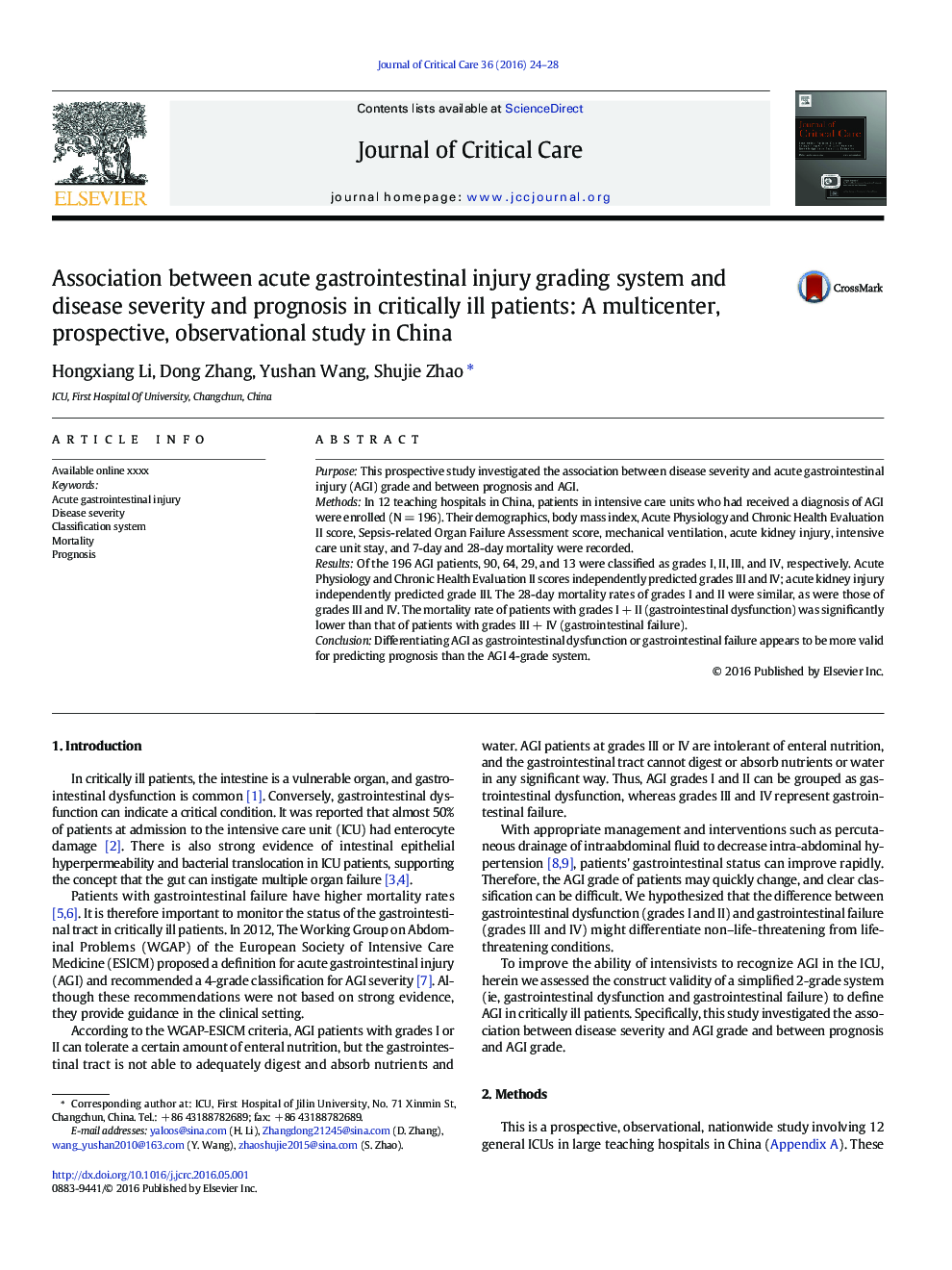| Article ID | Journal | Published Year | Pages | File Type |
|---|---|---|---|---|
| 2764398 | Journal of Critical Care | 2016 | 5 Pages |
PurposeThis prospective study investigated the association between disease severity and acute gastrointestinal injury (AGI) grade and between prognosis and AGI.MethodsIn 12 teaching hospitals in China, patients in intensive care units who had received a diagnosis of AGI were enrolled (N = 196). Their demographics, body mass index, Acute Physiology and Chronic Health Evaluation II score, Sepsis-related Organ Failure Assessment score, mechanical ventilation, acute kidney injury, intensive care unit stay, and 7-day and 28-day mortality were recorded.ResultsOf the 196 AGI patients, 90, 64, 29, and 13 were classified as grades I, II, III, and IV, respectively. Acute Physiology and Chronic Health Evaluation II scores independently predicted grades III and IV; acute kidney injury independently predicted grade III. The 28-day mortality rates of grades I and II were similar, as were those of grades III and IV. The mortality rate of patients with grades I + II (gastrointestinal dysfunction) was significantly lower than that of patients with grades III + IV (gastrointestinal failure).ConclusionDifferentiating AGI as gastrointestinal dysfunction or gastrointestinal failure appears to be more valid for predicting prognosis than the AGI 4-grade system.
